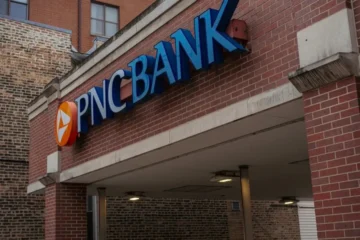It’s happened again—another big-name crypto exchange has fallen victim to hackers. This time, it’s CoinDCX, one of India’s most trusted platforms. On July 19, 2025, the exchange reported a staggering $44 million loss due to a “sophisticated server breach.” However, while Twitter spiraled into panic and Reddit lit up with speculation, CoinDCX assures you that your funds are still safe.
So… what actually happened? Should you be worried? And does this latest breach shake the foundation of trust in centralized exchanges all over again?
Let’s break it down.
Table of Contents
What Happened in the CoinDCX Hack?
CoinDCX confirmed that the breach occurred in one of its internal operational wallets. These are typically used to provide liquidity for trading pairs, especially when working with partner exchanges to offer smoother trades. This wallet, however, became the prime target.
According to CoinDCX’s founders, the attackers exploited a server vulnerability, gaining unauthorized access to the operational wallet, not the user-facing systems. Once inside, they methodically drained funds and started laundering them, attempting to conceal the money trail within the world of crypto’s decentralized architecture.
But here’s the kicker: customer wallets weren’t touched.
How Much Was Stolen — And From Where?
The hackers made off with a whopping $44 million worth of assets. That’s no chump change, especially for a platform as prominent as CoinDCX in the Indian crypto space.
The stolen assets came from the exchange’s treasury wallet, not from retail users. This particular wallet was being used on a partner exchange, adding another layer of complication to the story. Think of it as your bank’s internal fund being hit, not your personal savings account.
Also Read: Is Ethereum Still a Good Investment in 2025?
To mask their tracks, the attackers used Tornado Cash—a crypto mixer known for scrambling transactions—and bridged funds across Solana and Ethereum networks, both of which are commonly used in cross-chain laundering.
Who’s Behind the Breach? The Current Theories
So far, there’s no confirmed suspect. CoinDCX hasn’t attributed the breach to any known hacking group yet. But based on the attack pattern, many are speculating it could be the work of a state-backed actor or a highly organized cybercrime syndicate.
Why? The level of technical sophistication suggests deep knowledge of both CoinDCX’s infrastructure and advanced laundering techniques.
The timing is curious too—exactly one year after the WazirX $235 million hack in July 2024. Could this be a coordinated effort targeting Indian exchanges? Or is this just a painful coincidence?
Cybersecurity experts brought in by CoinDCX are currently investigating, and law enforcement agencies have been looped in as well.
Were User Funds Affected or Still Safe?
Here’s where the story takes a relieving turn.
CoinDCX emphasized that user funds are fully safe. Why? Because all customer assets are held in segregated cold wallets, completely isolated from the internet and separate from operational funds.
So even though the hack hit a hot wallet used for internal liquidity, no customer holdings were compromised. And that’s crucial, especially in a market where fear spreads faster than any token pump.
What’s more, CoinDCX absorbed the entire loss from its treasury—a bold move that signals both financial stability and a desire to retain user trust.
How Did CoinDCX Respond to the Attack?
Credit where it’s due—CoinDCX didn’t drag its feet. Here’s what they did within hours of discovering the breach:
- Isolated the compromised wallet to prevent further drainage.
- Brought in external cybersecurity experts for forensic investigation.
- Collaborated with the partner exchange where the wallet was operational.
- Launched a bug bounty program, encouraging ethical hackers to find system vulnerabilities.
- Informed the public quickly and transparently, avoiding the PR blackhole many platforms fall into.
- Began working with law enforcement agencies to trace and recover the stolen funds.
While no hack is ever good news, the response was, frankly, about as good as it gets under the circumstances.
What This Hack Means for Indian Crypto Investors
Indian crypto investors have had a rocky ride in recent years, from regulatory uncertainty to major exchange incidents like WazirX and now CoinDCX.
The latest hack adds another layer of concern, especially for retail users who may be wondering whether it’s even worth staying in the game. But it also shows the resilience of stronger platforms, particularly those that adopt transparent security protocols and hold customer assets responsibly.
If anything, this incident reinforces the importance of self-custody, 2FA, and basic crypto hygiene. Never keep all your holdings on an exchange, even if it’s reputable. Diversify not just your portfolio, but your risk exposure too.
Can We Still Trust Centralized Crypto Exchanges?
Ah, the million-satoshi question.
Centralized exchanges offer ease of use, fiat on-ramps, and liquidity—but they’re still honeypots for hackers. The CoinDCX hack didn’t impact users directly, but it does raise red flags about backend security, partner integrations, and the general opacity of how exchanges manage their funds.
It doesn’t mean we should abandon them altogether. But it does mean we should remain skeptical, educated, and cautious. Use centralized platforms for convenience, but not as your vault.
In the end, the best defense is a mix of cold wallets, due diligence, and staying informed. Because in crypto, even the most trusted names can take a hit.




